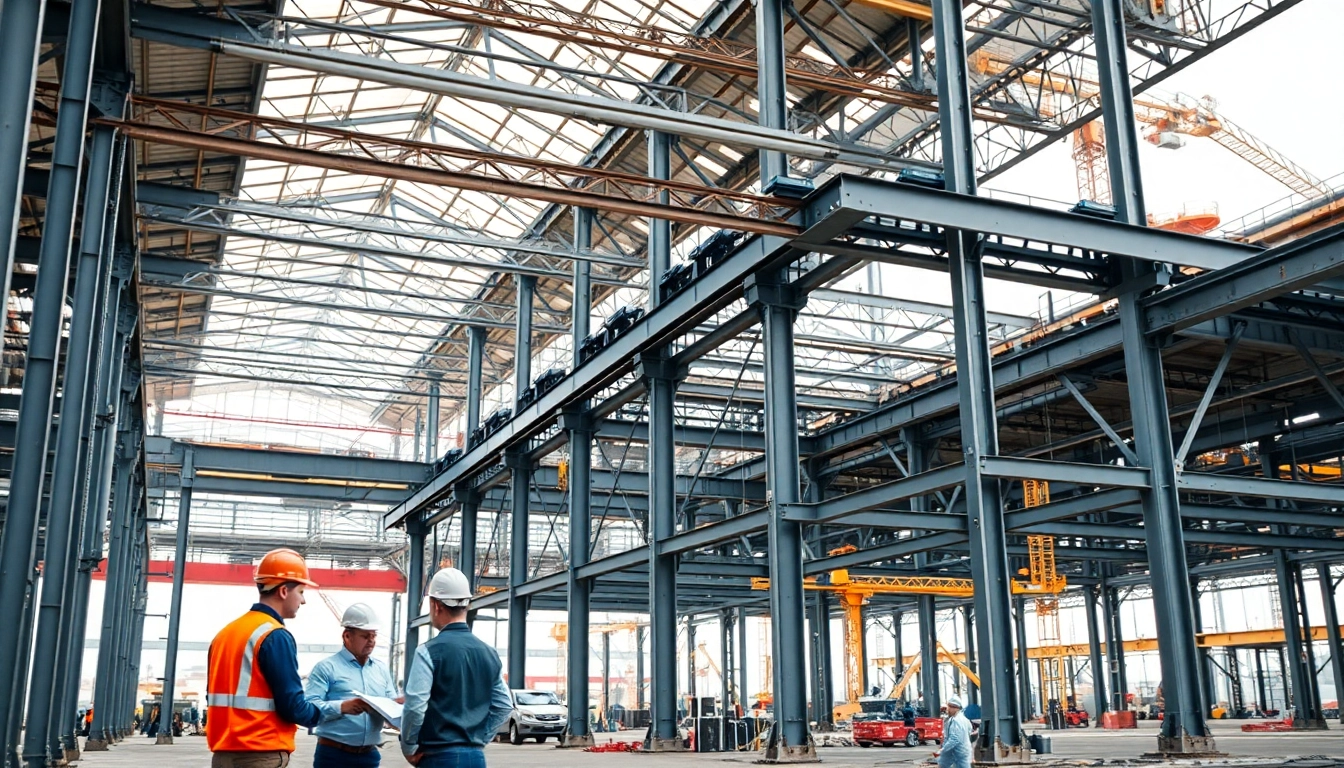Understanding the Role of a Manhattan Construction Manager
The landscape of construction management in urban areas like Manhattan is both challenging and rewarding. A pivotal figure in this ecosystem is the Manhattan Construction Manager, who orchestrates various elements of construction projects to ensure efficiency and quality. This article will delve into the comprehensive responsibilities, essential skills, and strategies that make a construction manager successful in one of the most dynamic cities in the world.
Defining Key Responsibilities
A Manhattan Construction Manager wears multiple hats throughout the lifecycle of a construction project. Their primary responsibilities include:
- Project Oversight: Ensuring that every phase of the project aligns with its timeline, budget, and quality standards.
- Budget Management: Developing, overseeing, and analyzing budgets to avoid cost overruns and ensure financial efficiency.
- Coordinating Labor: Hiring and managing subcontractors, scheduling workers, and ensuring that all labor is inspected and meets quality expectations.
- Site Safety: Ensuring compliance with safety regulations and best practices, including conducting safety meetings and inspections.
Essential Skills and Qualifications
To excel as a Manhattan Construction Manager, one must possess a blend of education, experience, and interpersonal skills:
- Educational Background: A degree in construction management, civil engineering, or a related field is often required.
- Professional Experience: On-site experience is crucial, as it offers insight into real-world challenges and practical applications of management techniques.
- Leadership Skills: The ability to lead teams, manage disagreements, and motivate others is key to project success.
- Technical Proficiency: Familiarity with construction management software and tools is increasingly vital for day-to-day operations.
Impact on Project Success
The influence of a Manhattan Construction Manager on overall project success cannot be overstated. They are responsible for maintaining tight schedules, managing diverse teams, and ensuring quality standards are met. Their ability to foresee potential issues and develop proactive solutions can mean the difference between a project coming in on time and under budget versus costly delays and overruns.
Effective Project Planning Strategies
The foundation of successful construction management lies in meticulous project planning. This section outlines various strategies that a Manhattan Construction Manager can employ to drive successful outcomes.
Creating Comprehensive Project Timelines
Developing a comprehensive project timeline is essential. It not only helps in scheduling tasks but also ensures that all stakeholders are on the same page. Steps for creating an effective timeline include:
- Identify Milestones: Define critical project phases and end goals.
- Task Breakdown: Divide larger tasks into smaller, actionable steps to improve tracking.
- Set Deadlines: Assign realistic deadlines to each task based on available resources and individual team capabilities.
Resource Allocation Techniques
Effective resource allocation can significantly impact project efficiency. To allocate resources wisely, a construction manager should:
- Assess Needs: Understand the requirements for labor, materials, and equipment for each project phase.
- Prioritize Projects: Allocate resources based on urgency and importance, especially in managing multiple projects simultaneously.
- Monitor Utilization: Keep track of how resources are used in real time, adjusting as necessary to avoid bottlenecks.
Risk Management Best Practices
Construction projects inherently involve various risks, from safety concerns to financial uncertainties. Implementing robust risk management practices is crucial. A construction manager should:
- Conduct Risk Assessments: Identify potential risks at the project’s outset and develop contingency plans.
- Monitor Risks: Regularly review risk factors and adjust plans as situations change.
- Train Staff: Ensure that all personnel are trained to recognize and respond to risks effectively.
Collaboration and Communication Techniques
Collaboration and communication are essential in construction management. A Manhattan Construction Manager needs to establish strong connections among various stakeholders for smooth operation.
Building Strong Relationships with Stakeholders
Building relationships with stakeholders fosters trust and collaboration. Effective strategies include:
- Regular Meetings: Hold frequent stakeholder meetings to provide updates and address concerns.
- Transparent Communication: Share vital project information openly, which can help mitigate misunderstandings and conflicts.
- Feedback Channels: Establish mechanisms for stakeholders to voice concerns and suggestions.
Utilizing Construction Management Software
Modern technology can significantly enhance project efficiency. By utilizing construction management software, a construction manager can:
- Centralize Information: Keep all project data in one accessible location, facilitating communication and collaboration.
- Track Progress: Monitor project performance in real time, allowing for timely adjustments to plans and resources.
- Automate Tasks: Use software to automate routine tasks such as scheduling and reporting, thus reducing administrative burden.
Facilitating Team Communication
Effective communication within the project team is critical to success. Strategies to enhance team communication include:
- Daily Briefings: Conduct daily or weekly briefings to align tasks and provide updates.
- Utilize Collaboration Tools: Implement tools like Slack or Microsoft Teams for ongoing communication.
- Establish Clear Channels: Define who communicates what and to whom, streamlining information flow.
Quality Control in Construction Management
Ensuring high-quality deliverables is a primary concern for any construction manager. Quality control processes help guarantee that the final product meets both client expectations and legal requirements.
Implementing Quality Assurance Processes
Quality assurance processes are crucial in maintaining standards throughout the project life cycle. Steps to implement these processes effectively include:
- Define Quality Standards: Establish industry-standard benchmarks that must be met for each aspect of the project.
- Regular Training: Invest in training for team members to ensure they understand and can implement quality expectations.
- Document Processes: Keep thorough documentation of quality procedures, ensuring transparency and accountability among team members.
Monitoring Compliance with Building Codes
Compliance with local building codes is a legal requirement. A Manhattan Construction Manager must:
- Stay Updated: Keep current with any changes to building codes that may affect the project.
- Conduct Pre-Inspections: Carry out preliminary inspections before final evaluations to ensure compliance.
- Collaborate with Inspectors: Work closely with local inspectors to facilitate seamless reviews and approvals.
Conducting Regular Site Inspections
Regular inspections of construction sites help ensure that quality standards and safety protocols are adhered to. Best practices for conducting inspections include:
- Scheduled Inspections: Set up a schedule for routine site inspections to systematically evaluate work quality and safety conditions.
- Use Checklists: Implement detailed inspection checklists to ensure all key aspects are reviewed.
- Provide Feedback: Offer immediate constructive feedback to teams to correct issues promptly.
Evaluating Project Performance
Evaluating project performance is essential for understanding successes and areas for improvement. A Manhattan Construction Manager should focus on key metrics and feedback mechanisms.
Key Performance Metrics for Construction Projects
Establishing key performance metrics allows construction managers to quantify success. Some important metrics include:
- Budget Variance: The difference between the planned budget and actual expenditure.
- Schedule Variance: The difference between the planned timeline and the actual completion rate.
- Quality Metrics: Measure rework rates and compliance with established quality standards.
Feedback Mechanisms for Continuous Improvement
Feedback is crucial for refining processes. A construction manager can establish feedback mechanisms through:
- Project Debriefs: Conduct discussions post-project to analyze results, learn from experiences, and gather insights.
- Surveys: Use anonymous surveys for team members and stakeholders to offer honest feedback on project execution and management.
- Benchmarking: Compare project outcomes against industry benchmarks to identify strengths and weaknesses.
Case Studies of Successful Projects
Learning from successful projects provides valuable insights into effective practices. A Manhattan Construction Manager can study completed projects to identify methods that yielded optimal results. Analyzing case studies aids in:
- Identifying Best Practices: Understanding which techniques contributed most to success.
- Understanding Challenges: Learning how others overcame specific challenges can provide solutions for future projects.
- Improving Client Relations: Insight into effective communication styles and team collaboration enhances future stakeholder interactions.














Leave a Reply